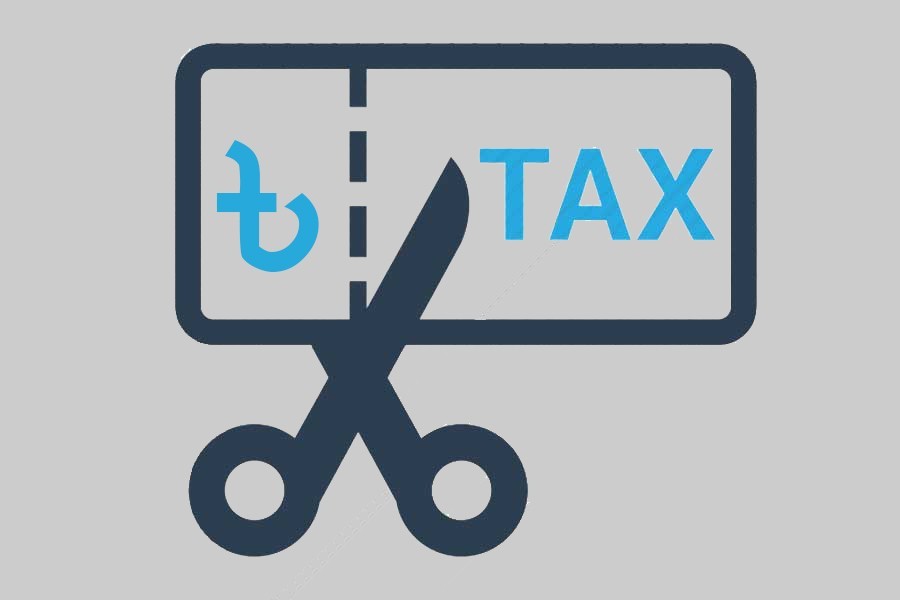Remodelling tax-waiver regime begins to benefit people
IMF prod for raising tax-GDP ratio also in play

Published :
Updated :

Bangladesh's revenue authority has begun tightening the tax-exemption regime incorporating provisions to pass on its benefits to the common people, under an overdue fiscal reform.
The National Board of Revenue has tagged some new conditions, including free-of-cost services in healthcare centres, and public-welfare measures, with the tax- waiver SROs.
A senior tax official says the Statutory Regulatory Orders (SROs) on tax exemption usually consisted of mandatory submission of tax return which has a brief description on income and expenditure of a company.
"There was no such provision to compel the beneficiary to pass the benefit to the poor people," he adds.
The revenue board has adopted the strategies on offering the tax benefit instead of giving it on a wholesale basis, he said.
Such strategies have been implemented on a case-by-case basis to review tax-exemption applications from the private sector, he adds about the reform measures.
Recently, for an instance, the government offered tax benefit on import of sugar but its prices at consumer stage increased rather than relieving the commoners with its downward adjustment.
Moreover, the official said, the NBR is discouraging zero-tax benefit to the industries in a bid to promote "culture of tax payment".
'The industry should start paying a nominal amount of taxes rather than enjoying a full waiver," he says about the fiscal rethink prompted by the fact that such incentives do not reach the consumer in most cases.
The government revenue authority has also moved to review the existing tax expenditures or tax exemptions to phase out the benefit eating up around 2.8 per cent of tax GDP.
"It's time the tax benefits were cut off from some sectors that achieved hefty growth and developed capacity to contribute to the public exchequer," he said.
The IMF has suggested increasing country's tax-GDP ratio by 0.5 per cent each in 2024 and 2025 and 0.7 per cent in 2026.
In the current fiscal budget, the NBR has phased out tax exemptions from some industries, including local refrigerator manufacturers and mobile-phone manufacturers.
Some more similar steps might take place in the upcoming budget for the industries graduating into full-blown capacity, sources said.
The NBR officials said the tax authority would have to bring down corporate taxes, import duties and other duty taxes as Bangladesh is approaching towards graduation to middle-income-country status.
It's a two-way challenge for the NBR-to raise tax-GDP ratio and also to bring down the tax rate, they added.
Economists, however, said the avenue that tax authority can overhaul is the tax benefit for some industries that became well-established availing the tax incentives.
Noted economist Dr Ahsan H Mansur suggests reviewing entire gamute of tax exemptions so far offered by the NBR to make transparent statements of the facility.
"The NBR should conduct scrutiny of the time-bound tax exemptions, its phases of extensions, time of expiry instead of primary judgment on the facility," says Dr Mansur, Executive Director of the Policy Research Institute (PRI).
The tax exemptions should come through parliament where statements on volume of net tax waiver must be written clearly, he adds.
Currently, the tax-exemption facility is not given in a transparent way, he observed.
Md Humayun Kabir, former president and council member of the Institute of Chartered Accountants of Bangladesh (ICAB), said statutory exemptions ( ie directive revenue leakage) or evasion or avoidance of tax with or without collaborations (systematic revenue leakage) are the reasons of low tax- to-GDP ratio.
"One of the ways to identify and minimise these leakages could be to use common or standard national code for tax collection and GDP calculations," he said.
This will help the policymakers focus on the variations and finding the corrective measures.
For example, he says, if GDP contribution of transport or apparel sector does not match the contribution of total taxes, then existing tax policies for the sectors need revision.
He, however, feels that low tax- GDP ratio should not create that level of "hypo" or importance as country's economic growth trajectory of the recent past is impressive,
"Why do nation needs 17-18-percent tax of its GDP if it could achieve 7-8-percent growth with such a low tax-GDP ratio?" he posed the question.
He, however, underscored the need for reforming tax administration and laws.
"Fiscal policy framing and implementation thereof should be separated for establishing effective accountability in tax collection," the accountancy specialist suggests.
" …….low tax-GDP ratio does not mean that the amount of money has remained idle and is not contributing to the GDP growth. In fact, the money in the hands of private sectors will generate more 'economic value' than in government hands," he views.
doulotakter11@gmail.com


 For all latest news, follow The Financial Express Google News channel.
For all latest news, follow The Financial Express Google News channel.